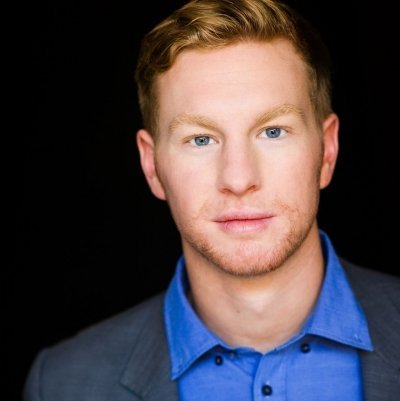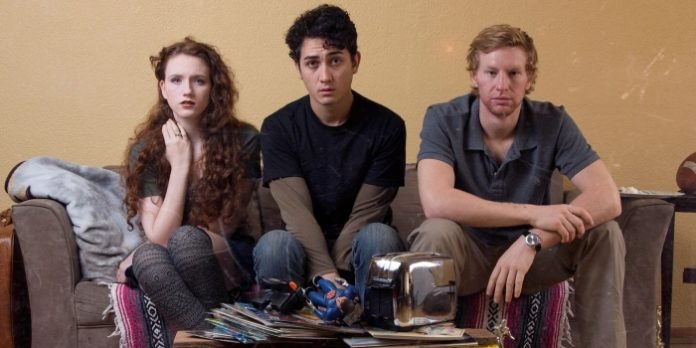Looking for opportunities to hone their craft, three recent Studio 58 graduates – Carlen Escarraga, Brett Willis, and Zac Scott – have decided to make their own opportunities, with a production Kenneth Lonergan’s This Is Our Youth.
This Is Our Youth, seems a fitting first show from this new Vancouver theatre collective as it explores the period between adolescence and adulthood.
Simultaneously funny, painful, and compassionate, This Is Our Youth follows the lives of three lost young souls over the course of forty-eight hours in New York City during the Reagan Era.
In this Q&A we find out more from actor, producer, and sound designer, Zac Scott.
How did you come to form Sticks and Stones Theatre with fellow Studio 58 grads?
I actually work a roofing job with Carlen and Brett, which gave us a lot of time to work, think, and talk about projects we would like to be doing, and where we would like to be going with our careers, etc. We would have these conversations ad nauseam and at a certain point we said lets stop talking about it, and lets start doing things.
Is this the first time the three of you have worked together since graduation?
Artistically yes, in a labour capacity, we have worked together too much.
Why did you decide to produce your own work?
We have all talked about wanting to produce our own work, and when we talk about it, it always seems to be in this nebulous “future”. You know, that magical place where we have got it all figured out, and all of the insecurities and problems that plague us today are no longer an issue. And at a certain point we realized that we weren’t getting anywhere just talking, and that future always seemed to be the exact same distance. Despite the passing of each new day, it was moving forward as we were, as so we decided to we had better get to catching it.
The none poetic answer is the only way to learn how to produce your own work is to produce your own work.

Why choose This Is Our Youth as your inaugural show?
I re-read This Is Our Youth about this time last year, for no particular reason, and it stuck in my head. I couldn’t stop thinking about it, and so I shared it with Carlen and Brett, and they felt the same. It had something juicy for all of us to do, and so we figured, it’s a good place to start.
Kenneth Lonergan has set the play in the 1980s – what continues to make the play relevant?
I think that the play has managed to stay relevant for two reasons that are somewhat interconnected.
I think that the play’s major theme is trying to figure out which you belong in a world that is constantly in flux, like trying to find some solid ground to stand on in the middle of an earthquake, an idea that hasn’t disappeared in young people since that time. In the age of Facebook and Twitter when things move faster then ever before and everyone has more of a platform to weigh in on everything happening in the world and with all of the information and misinformation floating around, that feeling of being young and uncertain in almost everything amplifies.
And it’s not like the youthful search to find one’s self is new, kids have always rebelled and questioned everything and been uncertain, and I think Kenneth Lonergan has tapped into some truth about that youthful ever present search and yearning to figure out where they belong, and who and what they are supposed to be. So I can identify with the core feelings of the characters, regardless of the outside context. I don’t know what it’s like to grow up with Reagan as your president and no Twitter, but I know what it’s like to grow up, and so I identify with these characters and feel like I get where they are coming from.
Kenneth Lonergan has tapped into some truth about that youthful ever present search and yearning to figure out where they belong… – Zac Scott
The play deals with the time between adolescence and adulthood – what is it about the play that speaks to that time in life?
Well, the three characters in the play are all in various stages of trying to figure themselves out in the big wide post secondary school world, to varying degrees of success. I think that watching them figure it out, or maybe not figure it out, is what speaks to that time in ourselves that we all went through.
The play has seen some notable film actors – Michael Cera, Matt Damon, Jake Gyllenhaal, Anna Paquin to name a few – in various roles – what is it about the play that would attract such talent?
I think such talents are attracted to it because it provides a great opportunity for exploration and play. The characters are so fully realized and specifically written and yet nothing feels written in stone. A lot of the fun in the play is in the ambiguity that can arise from human interaction when no one either knows how to say what they really mean, or don’t want to.
Tell us about how the relationship with Progress Lab 1422 in bringing the play to the stage.
Progress Lab does this amazing thing where sometimes when they have free time come up in their rehearsal space, and because they are rock stars, they give it away for free to emerging artists who were producing work. So they helped us out big time and gave us a space to rehearse in for a while for free, so we owe them a huge thank you, and really admire the fact that they are making the extra effort to help out emerging artists and foster a vibrant theatre community.
What’s next for Sticks and Stones Theatre?
Not really sure right at the moment. First thing would be a solid debrief, figure out how we did artistically and financially, talk about what we did that was successful and what wasn’t, what we can improve upon for next time etc. Then start talking about what we want to do next.
This Is Our Life plays the Havana Theatre (1212 Commercial Dr, Vancouver) January 6-14. Tickets are available online at Brown Paper Tickets.

